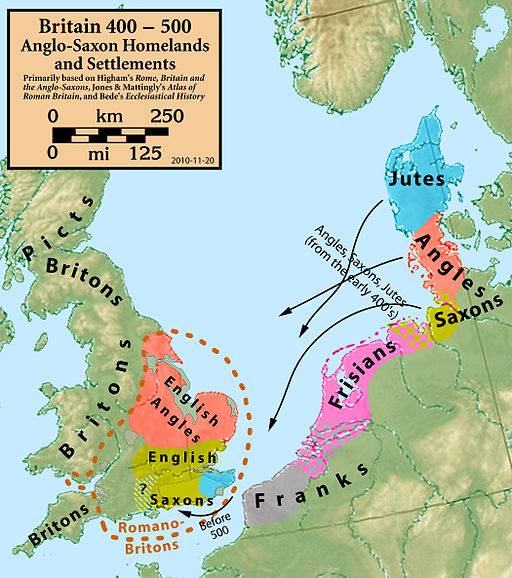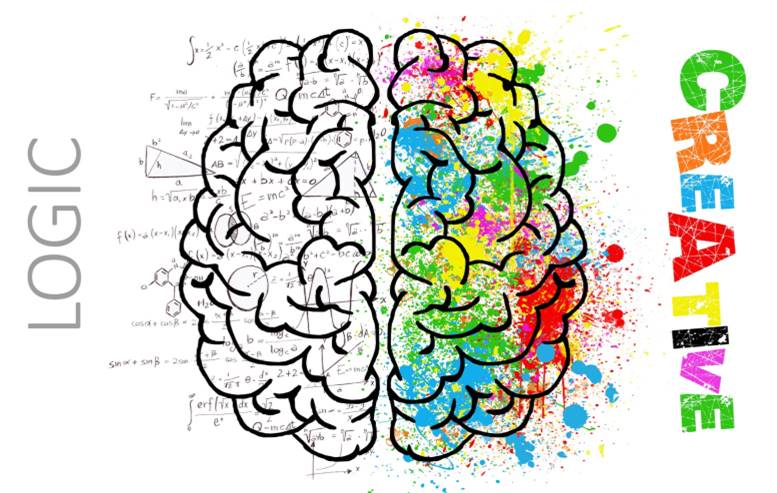It’s generally accepted that it’s harder to master reading and writing in English than it is in many other languages. Find out why in this article…
Click here for a summary of the article, or browse the contents of the main article below…
Disclaimer: We support the upkeep of this site with advertisements and affiliate links. We may earn a small commission if you click on the ads or links or make a purchase. There is no additional cost to you if you choose to do this.
Contents:
- A Lack of Design
- Successive Invaders Altered the Language
- A Borrowed Alphabet Created Problems
- Not Enough Letters
- Inconsistency
- A Changing Language but Spellings Frozen in Time
- Reading and Spelling Are Less Complicated in Some Languages
- Children in Some Countries Have Fewer Problems
- It’s Complicated, But Not Impossible
- References
Summary
- Learning to read and write in English is difficult because it contains a mixture of words and spellings from at least 5 different languages.
- The alphabet we use doesn’t have sufficient letters to represent all the spoken sounds in English.
- Letters and combinations of letters are used to represent sounds in a variety of ways that aren’t consistent from one word to the next.
- Although other languages have also incorporated words from different countries, few have as complex a spelling system as the English language.
- In spite of its complexity, there is still some structure to the English spelling system. The vast majority of children can be taught to read and spell English words proficiently if the instruction is done in an effective and systematic way.
A Lack of Design…
We’ve mentioned in other articles* that the English writing and spelling system is relatively difficult to master.
*For example, ‘Why Reading is Difficult’ and ‘Reading in Finland.’
No-one deliberately set out to make written English complicated. It’s just that there was never any real planning to make a straightforward and systematic writing system that would be easy to learn.
The current system we use for writing and spelling was created more by a series of historical conquests and accidents than by design.1
Successive Invaders Altered the Language
The Romans occupied Britain for nearly 400 years and they undoubtedly had some influence on the spoken languages of the time.
When the Romans finally left Britain in 410 AD, a mix of Germanic tribes invaded England and dominated during what is known as the Anglo-Saxon era (hence ‘Angle-land’). During this time, the native language and writing system were transformed into what we now call ‘Old English’.

Subsequent invasions by Danish Vikings and Normans from France added to the mix of languages and spellings used in the country. Many English words were also introduced from Greece because of its influences in science, medicine and philosophy.2,3
In more recent times, we’ve borrowed words from countries all around the globe, for example, bangle is derived from a Hindi word, robot is a Czech word, tea originates from China and tsunami from Japan. Of course, many other countries have also assimilated new words into their languages, but few are as complicated as English in its written form.
The video below provides a light-hearted look at the origins of modern English…
A Borrowed Alphabet Created Problems…
A big part of the problem is that the English alphabet wasn’t created for the English language. It was originally developed by early civilisations in the Middle East and later adapted by the ancient Greeks and then the Romans to write Latin.1
The Latin alphabet was adopted for writing English (and other European languages) because of the influence of the Roman Catholic Church, which used Latin as its official language.
But, unfortunately, the Latin alphabet is inadequate for representing spoken English…
Not Enough Letters
There are far more sounds in spoken English than there are letters in the Latin alphabet: we use 26 Roman letters but we have 40+ sounds in our language that need to be represented.
Early scribes had to use ‘letter patterns’, or ‘combinations’ to represent sounds that didn’t have individual letters. For example: ‘ch’ in cheese, ‘sh’ in shop and ‘igh’ in night.1
Inconsistency…
But there was a lack of consistency in how they represented the sounds, for example, the ‘igh’ sound that is found in words like high and tight is represented by different letter patterns in pie, eye, and time.
The sound ‘ee’ has 10 spellings: be, beat, beet, baby, key, deceive, believe, radio, marine and theme.
Some letter combinations represent more than one sound, for example:
- sound, soup and touch;
- head, bead and break;
- hoop and wood;
- allow and arrow;
- hear, pear and heard.
Perhaps the worst example is ‘ough’, which causes a lot of problems for people from other countries who are learning to read English. There are at least seven different ways it is used in words:
1) though, 2) through , 3) cough , 4) rough , 5) plough , 6) ought , 7) borough.
Individual letters in English can also represent different sounds in different words. For example, notice how the letter ‘o’ changes its sound when you read these different words: stop, son, robot, other.
Similarly, the letter ‘a’ represents different sounds in cat, bacon, wasp and water.
A poem attributed to Lord Cromer, which was published in The Spectator magazine in 1902, eloquently illustrates the quirks and complexities of the English spelling system:
Our Strange Lingo
When the English tongue we speak.
Why is break not rhymed with freak?
Will you tell me why it’s true
We say sew but likewise few?
And the maker of the verse,
Cannot rhyme his horse with worse?
Beard is not the same as heard
Cord is different from word.
Cow is cow but low is low
Shoe is never rhymed with foe.
Think of hose, dose, and lose
And think of goose and yet with choose
Think of comb, tomb and bomb,
Doll and roll or home and some.
Since pay is rhymed with say
Why not paid with said I pray?
Think of blood, food and good.
Mould is not pronounced like could.
Wherefore done, but gone and lone –
Is there any reason known?
To sum up all, it seems to me
Sound and letters don’t agree.
Examples like this can make our spelling system seem entirely illogical. However, there is more structure to it than many people realise. And different spellings for words that sound the same can actually help with our comprehension once we get the hang of them.
For example, if you see the word ‘rowed’ you will instantly realise that the sentence has got something to do with a boat. Whereas, you would associate the words ‘road’ and ‘rode’ with entirely different scenarios.
For more information about our unusual spelling system see this article in the excellent ‘Spelfabet’ website: spelling for kids.
A Changing Language, but Spellings Frozen in Time…
In addition to the problems already mentioned, the language itself has evolved over time and some words are pronounced quite differently than they were when the spelling and writing system was established. Unfortunately, the evolution of spelling didn’t take place at the same time because the introduction of the printing press effectively froze spelling in the 15th century.4
So, as a result of its complex history, we now have a very complex writing system: Professor Diane McGuiness has estimated there are over 400 spellings for the 40+ sounds in the English Language 5 while other researchers have suggested the figure could be over 1,000.6
Literacy researcher and author Masha Bell has found that over 4,000 of the 7,000 most commonly used English words contain some letters that have to be individually memorised.7
“It’s easy to forget that the system we have learned is a system that is based on a series of accidents that result in layers of complexity. … It’s a mess.” 1
Dr Thomas Cable, Professor of English and Co-author: A History of the English Language.
Reading and Spelling Are Less Complicated in Some Languages
In his independent review of the teaching of early reading in the UK, Sir Jim Rose commented:
“… it is generally accepted that it is harder to learn to read and write in English because the relationship between sounds and letters is more complex than in many other alphabetic languages”. 8
Compared to English, the writing and spelling systems of many languages are relatively straightforward because a given letter, or combination of letters, reliably corresponds to a given sound.
Some languages have far fewer sounds than English, so the Latin alphabet is sufficient to cover them. And there have been reforms in the writing systems in other languages to make them more consistent.
Languages with straightforward spelling systems are sometimes said to have shallow orthographies, or transparent alphabetic codes.9 Academics say the English language has a deep orthography, or an opaque alphabetic code.
A Dyslexia study made the following comparison between English and Italian:
“In English, there are 1,120 ways of representing 40 sounds (phonemes) using different letter combinations (graphemes). Mapping letters to word sounds is ambiguous…” 10
“By contrast, in Italian there is no such ambiguity and 33 graphemes are sufficient to represent the 25 phonemes. This means that the same letter groups in Italian almost always represent the same unique sound, which makes the written language logical and easy to read.” 10
Learning to read in English appears to be especially problematic because as well as a confusing spelling system the language also has an especially complex syllabic structure. 11
Syllables in English can contain a greater variety of letter combinations than in many languages and it’s thought that reading words with more than one syllable is especially troublesome for English speakers.
Native English speakers stress some syllables in multisyllabic words by saying them louder, for longer and with a higher pitch. The other syllables in these words tend to be spoken more quickly and the vowels aren’t pronounced as clearly.
This can make ‘sounding out’ written words more difficult in written English compared to some other languages…
“… while English readers must learn about stress assignment and cope with the reduction of vowels in unstressed syllables, speakers of languages like Finnish, French and Icelandic do not have to confront these complexities because the pattern of stress in each of these Languages is fixed and predictable.” 12
Children in Some Countries Have Fewer Problems…
The effects of these variations in spelling systems aren’t trivial…
Research has shown that in countries with transparent alphabetic codes (such as Finland, Spain, Italy and Germany) most children can read quite accurately and fluently after their first year of schooling. 13
However, in countries with more opaque alphabetic codes (such as Denmark, France, Portugal and England) the majority of children are still making a lot of errors after their first year.
English-speaking children needed an average of three years to attain basic reading fluency! 14
Another study, which compared English and Italian, found that the complexity of our writing system has a significant impact on spelling:
“We found greater accuracy in spelling in Italian than English children: Italian children were very accurate after only 2 years of schooling, while in English children the spelling performance was still poor after 5 years of schooling.” 15
Studies have also shown that the complexity of the English writing system has an impact on the proportion of children who develop dyslexia:
“The prevalence of dyslexia in 10-year-old children in Italy was found to be half that of the USA.” 16
Considerable differences have also been observed in children who have learned to read two languages at the same time.
For example, researchers Geva and Siegel studied the word recognition skills of a large group of Canadian children from primarily English-speaking homes.
The children were attending a bilingual English-Hebrew day school. Hebrew has a relatively straightforward (transparent) writing and spelling system.
Researchers found that the children’s accuracy of reading words in Hebrew was as good in grade 1 as the level they achieved in English in Grade 5! 17
It’s Complicated, But Not Impossible...
Although it’s complex, there is still some structure to the English spelling system. In fact, more than many people realise…
Detailed analysis has shown that the spellings nearly 50 percent of English words are predictable based on sound-letter correspondences that can be taught, and another 34 percent of words are predictable except for one sound. 18
This means that children can spell most words, either completely or in part, once they’ve developed a good understanding of common spelling patterns and the relationships between letters and the sounds they represent.
The inconsistencies mean it takes time to become competent with written English. Nevertheless, the vast majority of children can be taught to read and spell proficiently if the instruction is done in an effective and systematic way.
If you would like to know more about how this can be done, click on the link below for our articles on Learning to Write and Spell .
You also might want to check out our other articles on struggling readers and dyslexia.
References:
- Roots of Confusion, Children of the Code.
- Open University History of English (combined).
- A Brief History of the Code – Part 2: The First Millennium Bug.
- Casting Spells, Children of the Code.
- The English Alphabet Code RRF 2011 Dr Diane McGuinness.
- Dyslexia Study In ScienceHighlights The Impact Of English, French, And Italian Writing Systems.
- Bell, M. English spelling and its effects.
- Independent review of the teaching of early reading (Rose 2006.p18-19)
- What is dyslexia? Dyslexics.org.uk
- The Impact of English, French, And Italian Writing Systems,Science
- Willingham, D. (12/17/2012). The PIRLS Reading Result – Better than You May Realise.
- Wood, C and Connelly V (2009) Chapter 3, page Contemporary Perspectives on Reading and Spelling, Routledge
- Foundation literacy acquisition in European orthographies. Seymour, Aro & Erskine, 2003
- Bell, M. English spelling and its effects.
- Chiara, V. et al. (2015) Spelling Acquisition in English and Italian: A Cross-Linguistic Study. Frontiers in Psychology.
- Dyslexia Study In ScienceHighlights The Impact Of English, French, And Italian Writing Systems.
- https://www.dyslexics.org.uk/
- Hanna, P.R., Hanna, J.S., Hodges, R.E., and Rudorf, E.H., Jr. (1966). phoneme-grapheme correspondences as cues to spelling improvement

